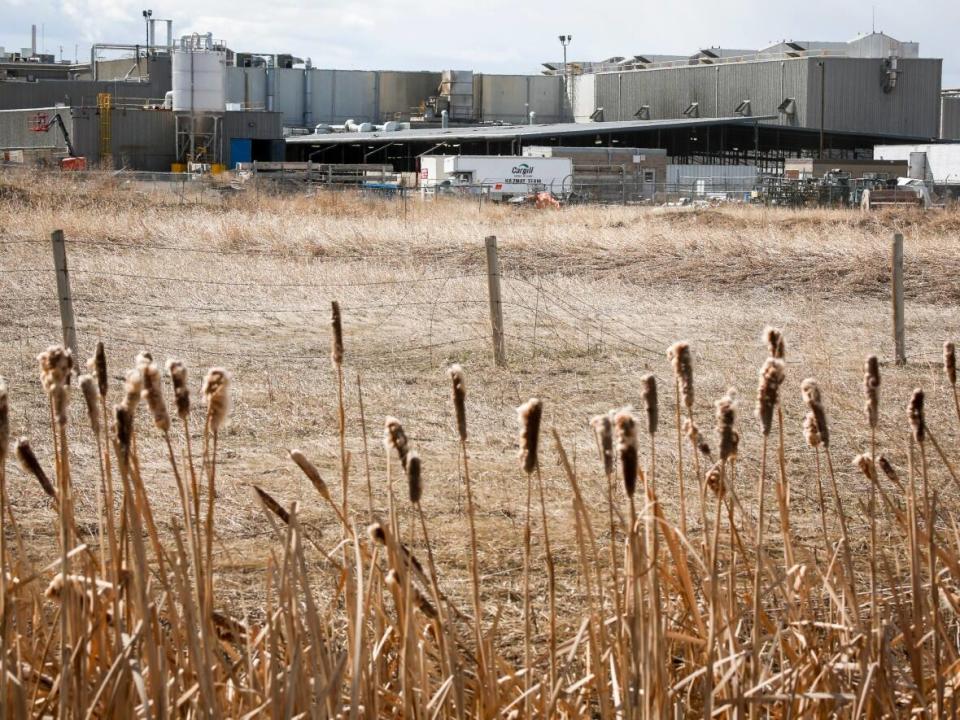Alberta union questions 'shocking change' to Canada's temporary foreign worker program

More temporary foreign workers are on their way to Alberta production floors as part of a move by the federal government to solve labour shortages in certain industries.
As of Saturday, accommodation and food service industries, including meat-packing plants, can now hire up to 30 per cent of their workforce through the TFW program, an increase from the former cap of 10 per cent.
For the head of at least one Alberta union, it's a "shocking change."
"I don't think it really is going to solve labour shortages, which I would argue don't really exist," Thomas Hesse said in an interview with the Calgary Eyeopener last week. He's the president of United Food and Commercial Workers Local 401, which represents 32,000 workers at major meat-processing facilities in southern Alberta.
"What it still does is it hands the employer a very complicit and malleable workforce," he said.
About 100,000 temporary foreign workers come to Canada each year under a program that allows employers to hire them if no Canadian or permanent resident is available.
In a release, the federal government noted a historic job vacancy rate in late 2021, with 130,070 vacancies in the accommodation and food services sector.
It says the changes to the program will ensure it can meet the current demand.
"Due to the pandemic, we took steps to prioritize jobs for unemployed Albertans by limiting the number and types of jobs available to new temporary foreign workers," said the Ministry of Labour and Immigration in a statement to CBC Calgary.
"As more Albertans get back to work, removing this limitation will support sectors of Alberta's economy that are experiencing labour shortages and struggling to hire Canadian workers."
Marie-France MacKinnon, senior vice-president of public affairs and communications at the Canadian Meat Council, says the change is a big deal for meat processors.
"It's been hard," she said about the pandemic in a Calgary Eyeopener interview on Monday.
"This cap, it's really been capping our processing capacity. So this announcement will really help to stabilize our food supply chain by allowing us to hire the workers we need."
Concerns over vulnerable workforce
At meat-processing plants covered by his union, Hesse argues he has not seeing any labour shortage.
Temporary foreign workers often face language barriers, don't know their rights and are scared to speak up, Hesse says, so a move to increase the number of temporary foreign workers also makes the workforce more vulnerable.
The TFW system came under scrutiny during the pandemic, with Canada's Auditor General Karen Hogan reporting in December that the federal government did not do enough to ensure those workers were being protected.
One of the largest COVID outbreaks in North America happened at the Cargill meat-packing plant in southern Alberta, with hundreds of cases reported and at least two employee deaths.
"If they're complaining that they can't attract workers, it's because of their own treatment of their workers," Hesse said.
"They can solve their stigma by just treating people better and paying them a fair wage for the very hard work that's done in the plant."
Plants like Cargill have greatly improved safety measures since those days, MacKinnon said.
She also argues the pandemic, and the long hours worked by meat-processing employees, are exactly the reason why the industry needs more workers.
"Our labour shortage is one thing, but our labour workforce is also very tired," she said.
Workers at most plants are also unionized, MacKinnon noted, and their wages are approved by United Food and Commercial Workers Canada.
"These workers coming in are treated the exact same as the Canadian, the Albertan working side-by-side with them."
JBS Foods Canada did not respond to inquiries from CBC News about the changes to the TFW program. Cargill declined to comment.
In its release, the federal government says it will continue to monitor the program to ensure workers are treated fairly.

